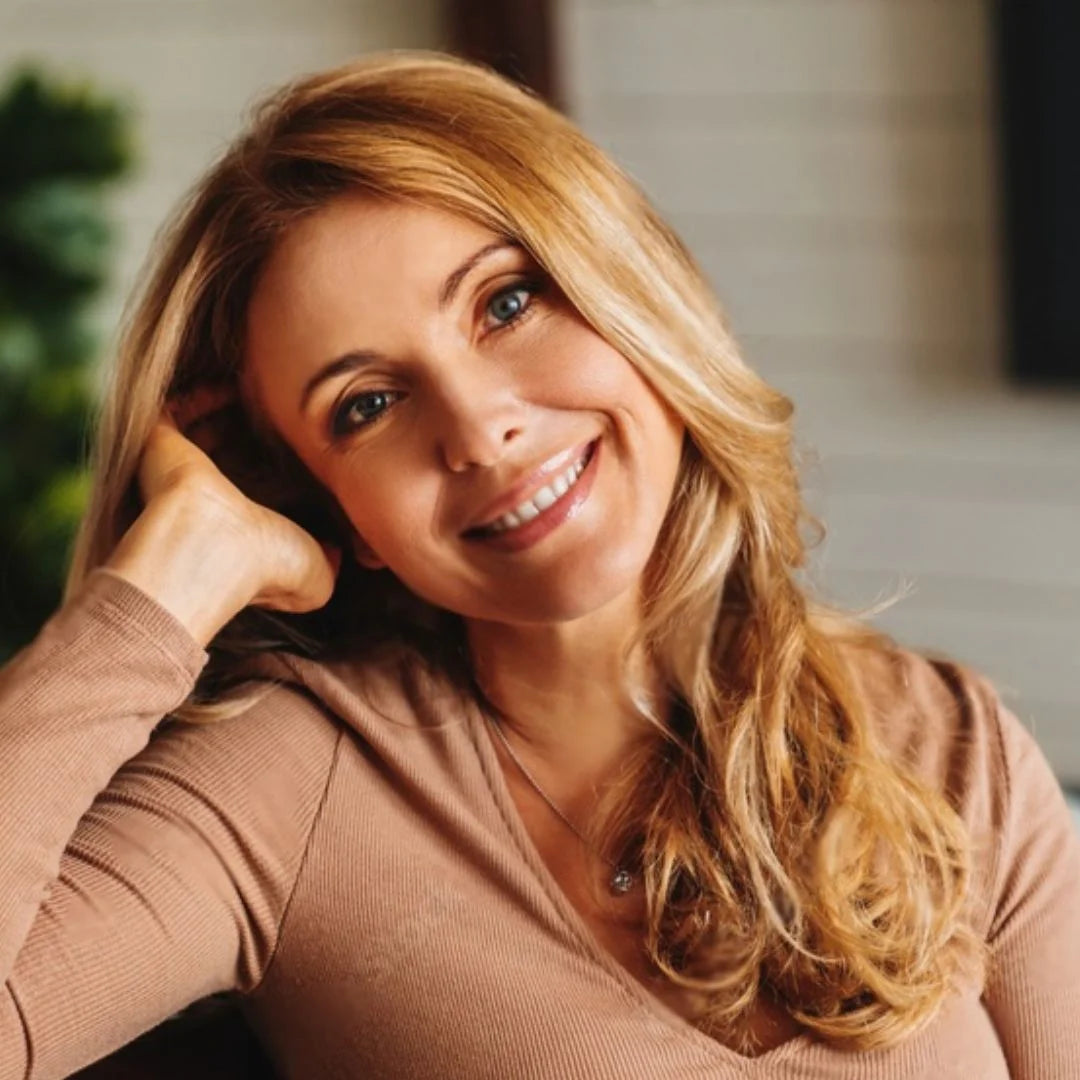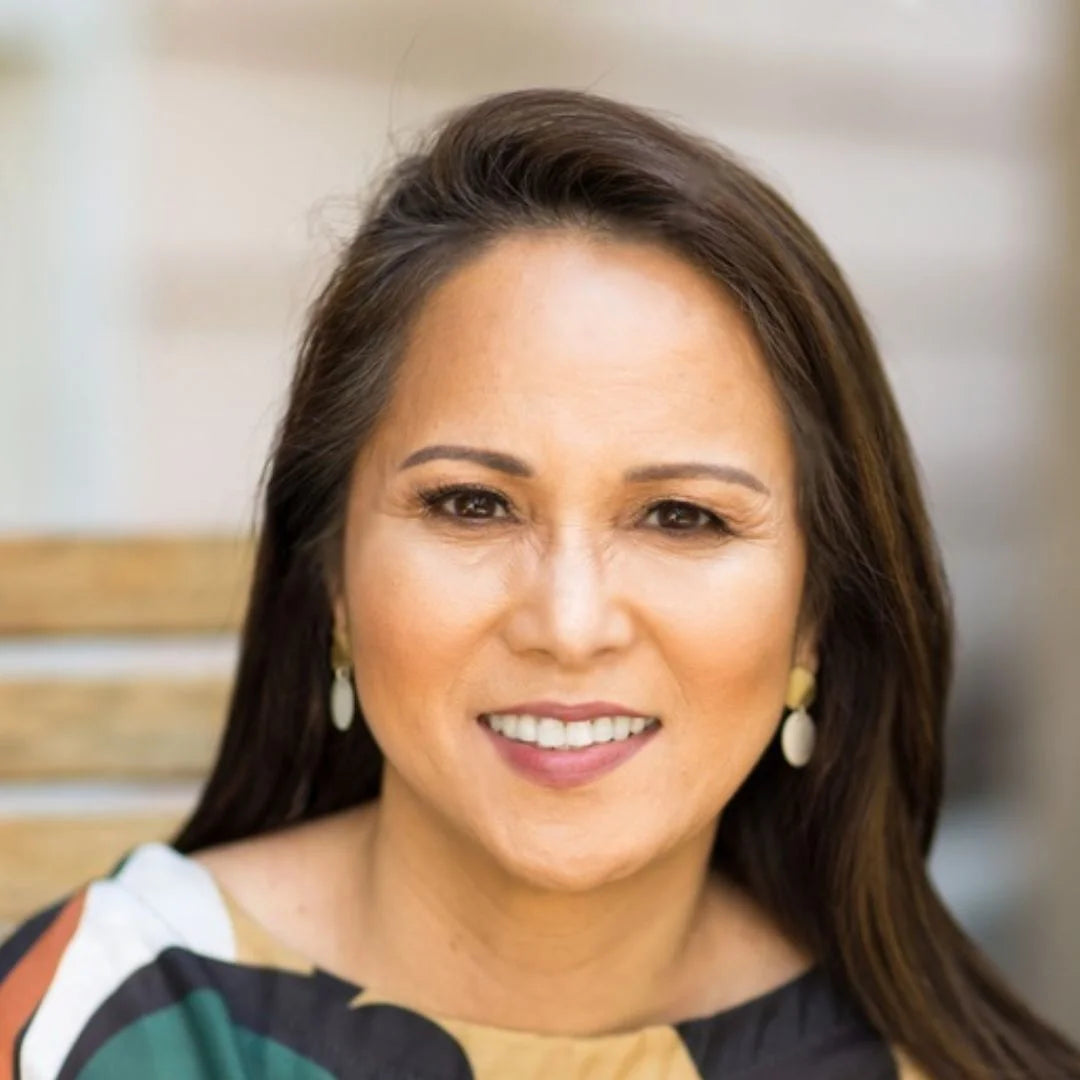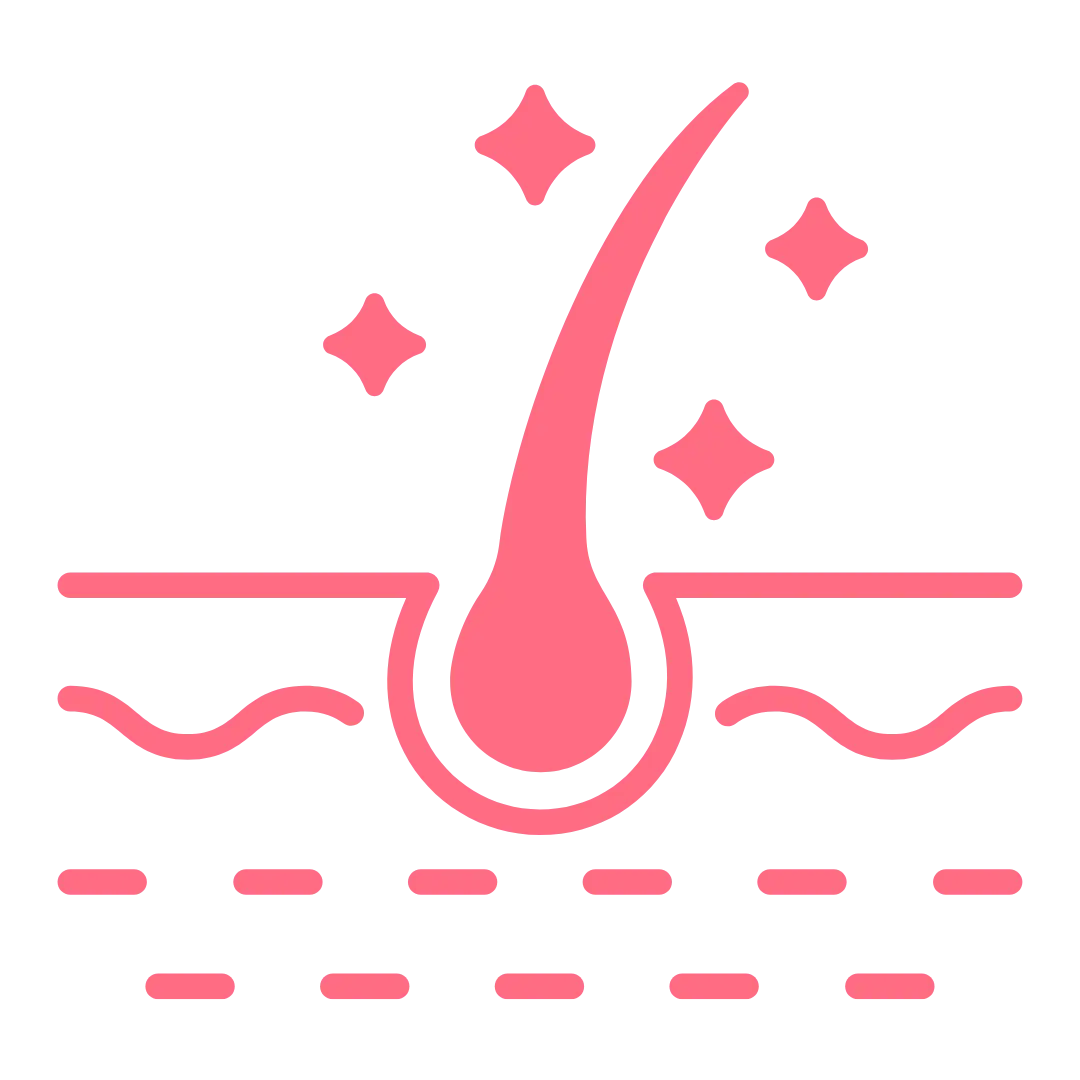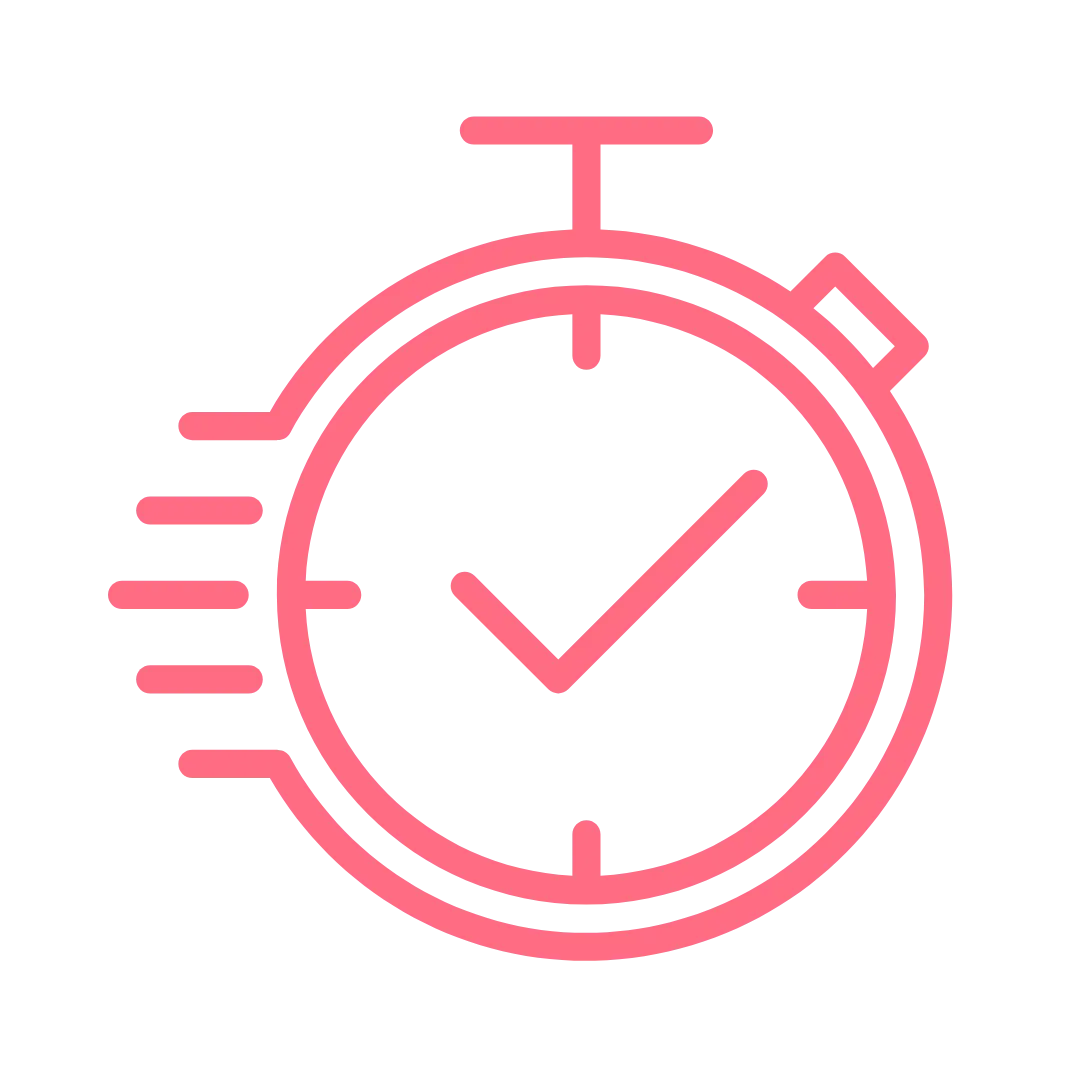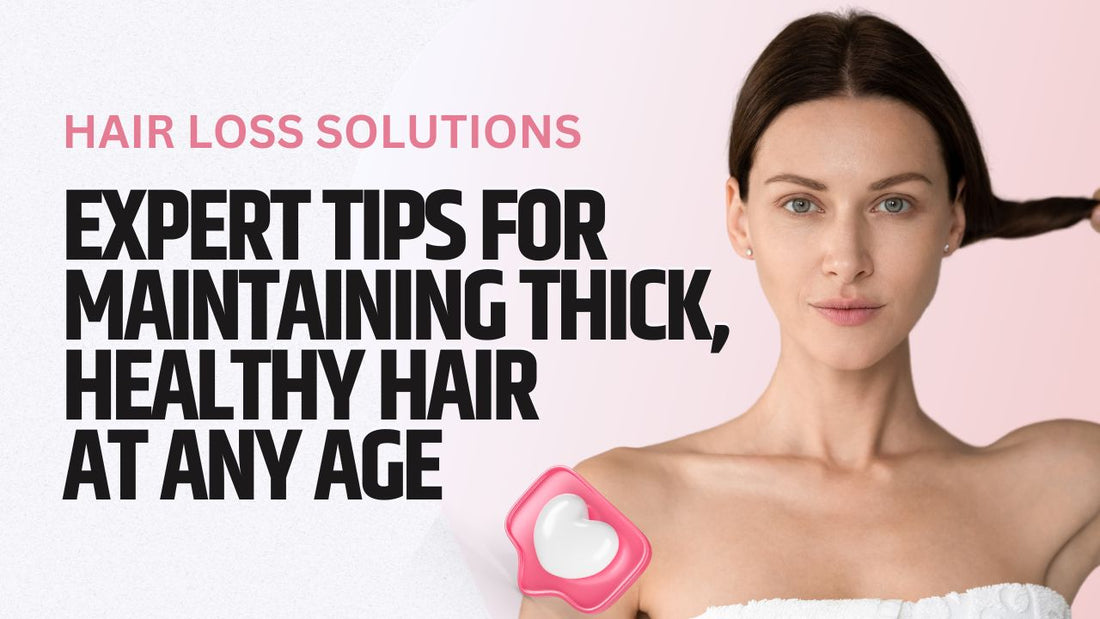
Expert Tips for Maintaining Thick, Healthy Hair at Any Age
Share
Maintaining thick, healthy hair is more than a mere fashion statement; it mirrors your overall well-being and health. The allure of shiny, thick locks is timeless, representing youth and vitality. However, the quest for healthy hair transcends age boundaries. As we age, our hair naturally transforms, necessitating an evolution in its care routine. In this comprehensive guide, we'll delve into expert tips for effectively maintaining thick, healthy hair at every stage of life.

Understanding Hair Changes Over Time
Hair Growth and Loss: The Basics
Before diving into age-specific tips, it's crucial to understand the biology of hair growth and loss. Each hair follicle on your scalp goes through a cycle of growth, rest, and shedding. The rate of this cycle varies from person to person. Typically, hair grows about half an inch per month and can continue doing so for several years. However, as we age, this growth rate can slow down.

Texture and Thickness Changes
One of the most noticeable changes in hair as we age is its texture and thickness. In youth, hair often appears thicker and more vibrant due to a higher production of natural oils and proteins. Over time, these oils decrease, leading to drier and potentially thinner hair. Additionally, factors like genetics and hormonal changes can contribute to changes in hair texture.
Nutritional Foundations for Healthy Hair
The Role of Diet in Hair Health
The saying "you are what you eat" holds true for your hair as well. Proper nutrition is fundamental to maintaining healthy locks. Here are some key nutrients that play a significant role in hair health:
- Protein: Hair is primarily composed of a protein called keratin. Ensuring an adequate intake of protein from sources like lean meats, fish, eggs, and plant-based options like beans and nuts is essential.
- Vitamins: Vitamins A, C, and E are known for their role in promoting healthy hair. They can be found in fruits, vegetables, and supplements if necessary.
- Omega-3 Fatty Acids: These healthy fats, found in fish, flaxseeds, and walnuts, contribute to scalp health and can help prevent dry, brittle hair.
- Biotin: Also known as vitamin H, biotin is crucial for hair growth and can be found in foods like eggs, nuts, and whole grains.
- Iron: Iron deficiency can lead to hair loss, so include iron-rich foods like spinach, lentils, and lean red meat in your diet.

Supplements for Hair: Are They Necessary?
While a balanced diet should provide the necessary nutrients for healthy hair, some individuals may consider supplements. Before adding supplements to your routine, consult with a healthcare professional. Overconsumption of certain vitamins and minerals can have adverse effects.

Hair Care Routines for Every Age
In Your 20s and 30s: Prevention and Maintenance
In your 20s and 30s, the focus should be on prevention and maintenance. This is the prime time for your hair, and establishing good habits now can set the stage for healthy hair in the years to come:
- Gentle Shampooing: Avoid daily shampooing, as it can strip your hair of its natural oils. Opt for a mild, sulfate-free shampoo.
- Conditioning: Use a conditioner to keep your hair hydrated and manageable. Apply it mainly to the ends of your hair to avoid a greasy scalp.
- Heat Styling: Limit the use of heated styling tools like straighteners and curling irons, and always use a heat protectant spray.
- Regular Trims: Get regular trims to prevent split ends and maintain your hair's overall health.
- Balanced Diet: Focus on a well-balanced diet with plenty of fruits, vegetables, and protein-rich foods.

In Your 40s and 50s: Addressing the Signs of Aging
As you enter your 40s and 50s, you may start noticing age-related changes in your hair, such as thinning or graying. Here's how to address these signs:
- Switch to Anti-Aging Products: Consider using hair care products specifically designed to address the signs of aging. Look for ingredients like peptides, antioxidants, and biotin.
- Hair Growth Treatments: Consult a dermatologist for potential hair growth treatments, such as minoxidil or low-level laser therapy.
- Coloring: If you choose to color your hair to cover grays, opt for gentle, ammonia-free dyes to minimize damage.
- Scalp Care: Pay attention to scalp health by using a gentle exfoliating shampoo and massaging your scalp regularly to promote blood circulation.
- Supplements: Discuss with a healthcare professional if supplements like biotin or collagen are suitable for your hair's needs.

60s and Beyond: Embracing and Nourishing Mature Hair
In your 60s and beyond, embracing the natural changes in your hair becomes key. Here are some tips for maintaining hair health during these mature years:
- Hydration: Keep your hair and scalp well-hydrated by using a moisturizing shampoo and conditioner. Avoid excessive heat styling.
- Haircuts: Consider shorter hairstyles that can be easier to manage and can make thinning hair appear fuller.
- Hair Accessories: Use soft hair accessories to prevent breakage, and avoid tight hairstyles that can pull on the hair.
- Professional Guidance: Consult a dermatologist or trichologist for personalized advice on maintaining mature hair.

The Role of Proactive Rosemary Hair Booster Oil
Throughout your life, using a hair booster oil like Proactive Rosemary Hair Booster Oil can be a valuable addition to your hair care routine. This oil is known for its numerous benefits in promoting hair thickness and overall health:
- Stimulates Hair Growth: Rosemary oil is believed to stimulate hair follicles, potentially leading to increased hair growth.
- Strengthens Hair: It can strengthen the hair shaft, reducing breakage and promoting overall hair health.
- Reduces Dandruff: Rosemary oil has antifungal properties that can help with dandruff and an itchy scalp.
- Improves Scalp Health: Massaging the oil into your scalp can improve blood circulation and support a healthy scalp environment.
To use Proactive Rosemary Hair Booster Oil, simply massage a few drops into your scalp and hair, leave it on for a few hours or overnight, and then wash it out. Incorporating this oil into your routine can complement the other steps in your hair care regimen.
The Impact of Lifestyle Choices
Stress Management and Hair Health
Stress is a common factor in hair health. When you're under chronic stress, your body may divert nutrients away from your hair follicles, leading to hair thinning or even hair loss. Here are some strategies for managing stress and supporting your hair:
- Relaxation Techniques: Practice relaxation techniques like deep breathing, meditation, or yoga to reduce stress levels.
- Adequate Sleep: Ensure you get enough quality sleep, as sleep deprivation can contribute to stress.
- Exercise: Regular physical activity can help reduce stress and improve blood circulation to the scalp.
- Seek Support: Don't hesitate to seek support from a therapist or counselor if you're experiencing chronic stress or anxiety.

Exercise and Hair: A Hidden Connection
Regular exercise not only benefits your overall health but can also have a positive impact on your hair. Here's how staying active can contribute to maintaining healthy locks:
- Improved Blood Circulation: Exercise increases blood flow, which can promote nutrient delivery to hair follicles.
- Stress Reduction: As mentioned earlier, exercise is an effective stress reducer, which indirectly supports hair health.
- Hormone Regulation: Physical activity can help regulate hormone levels, which play a role in hair growth.
- Sweat and Hair Cleansing: Sweating during exercise can help cleanse your hair and remove built-up oils and debris.

Advanced Hair Care Techniques For Maintaining Thick, Healthy Hair
Professional Treatments: Worth the Investment?
If you're looking for more advanced solutions to address specific hair concerns, professional treatments may be worth considering. These treatments are typically performed at salons and can include:
- Keratin Treatments: These can help reduce frizz and make hair more manageable.
- Scalp Treatments: Specialized treatments can target specific scalp issues like dandruff or excess oil.
- Hair Extensions: For individuals dealing with significant hair loss or thinning, hair extensions can provide a temporary solution.
- Chemical Treatments: These include perms, relaxers, and color treatments. Ensure you choose a reputable salon to minimize damage.
DIY Hair Care: Natural Remedies and Masks
If you prefer natural approaches to hair care, there are plenty of DIY remedies and masks that can nourish your hair and scalp. Here are a few popular options:
- Coconut Oil Mask: Apply warm coconut oil to your hair and scalp, leave it on for a few hours, and then shampoo. This can help moisturize and strengthen your hair.
- Avocado and Banana Hair Mask: Blend ripe avocado and banana, apply the mixture to your hair, and leave it on for about 30 minutes before rinsing. This mask provides essential nutrients for your hair.
- Aloe Vera Scalp Treatment: Apply fresh aloe vera gel to your scalp and leave it on for 30 minutes before washing it out. Aloe vera can soothe the scalp and promote hair health.
- Egg Mask: Beat an egg and apply it to your hair, leaving it on for 20 minutes. Eggs are rich in protein and can help strengthen your hair.
Common Hair Care Mistakes to Avoid
While taking proactive steps to care for your hair is essential, it's also crucial to avoid common mistakes that can harm your locks. Here are some practices to steer clear of:
- Excessive Heat: Using high heat settings on styling tools can lead to heat damage and brittle hair. Use lower heat settings when possible.
- Tight Hairstyles: Wearing tight hairstyles like ponytails or braids can pull on your hair, leading to breakage. Opt for looser styles.
- Over-Shampooing: Shampooing your hair daily can strip it of natural oils. Aim for 2-3 times a week, or as needed.
- Neglecting Scalp Care: A healthy scalp is the foundation of healthy hair. Don't forget to pay attention to your scalp's needs.
- Chemical Overload: Excessive use of hair dyes, relaxers, or perms can weaken your hair. Space out chemical treatments and use products designed for chemically treated hair.
Hair Care Myths Debunked
There are numerous myths and misconceptions about hair care and growth. Let's debunk some of the most common ones:
- Trimming Makes Your Hair Grow Faster: Trimming your hair does not actually affect its growth rate. It can, however, prevent split ends, making your hair appear healthier.
- Shaving Your Head Will Make Hair Grow Thicker: Shaving your head may change the texture of your hair temporarily, but it won't alter its growth pattern or thickness.
- Brushing Your Hair 100 Strokes a Day is Beneficial: Excessive brushing can lead to breakage. Brush your hair as needed to detangle and style, but don't overdo it.
- Rinsing with Cold Water Makes Hair Shinier: While cold water can temporarily smooth the hair cuticle, it won't provide long-term shine. The effect is minimal.
- You Can Repair Split Ends: Unfortunately, there's no way to repair split ends once they occur. Trimming is the only solution.
Conclusion
In the quest for maintaining thick, healthy hair at any age, adopting a holistic approach is paramount. Understanding the natural changes that occur in your hair as you age and implementing the appropriate care routine are essential steps in ensuring optimal hair health. Regardless of whether you find yourself in your 20s, 40s, or beyond, there exist specialized strategies and products designed to support you in your journey toward maintaining thick, healthy hair.
It's crucial to incorporate a balanced diet into your routine, effectively manage stress, and make wise choices when it comes to selecting products and treatments. Always keep in mind that patience and consistency play pivotal roles in the pursuit of achieving and sustaining healthy, thick hair. Embrace the inevitable changes gracefully, and your hair will reward you with its inherent natural beauty and vitality, exemplifying the essence of "Maintaining Thick Healthy Hair."
FAQs
Q1: Can I reverse hair thinning with the right products and treatments?
A1: While you can't completely reverse hair thinning, certain products and treatments can help slow down the process and promote healthier, thicker-looking hair. Consult with a dermatologist for personalized advice.
Q2: How often should I shampoo my hair?
A2: Shampooing frequency depends on your hair type and lifestyle. Generally, 2-3 times a week is sufficient for most people. Over-shampooing can strip your hair of natural oils.
Q3: Do natural remedies like coconut oil and aloe vera really work for hair care?
A3: Yes, natural remedies can be effective for hair care. Coconut oil and aloe vera, in particular, have moisturizing and soothing properties that can benefit your hair and scalp. However, results may vary from person to person.
Q4: Are salon treatments worth the investment for improving hair health?
A4: Salon treatments can be effective for specific hair concerns, but they can be costly and require ongoing maintenance. Consider consulting with a professional to determine if they are suitable for your needs and budget.







